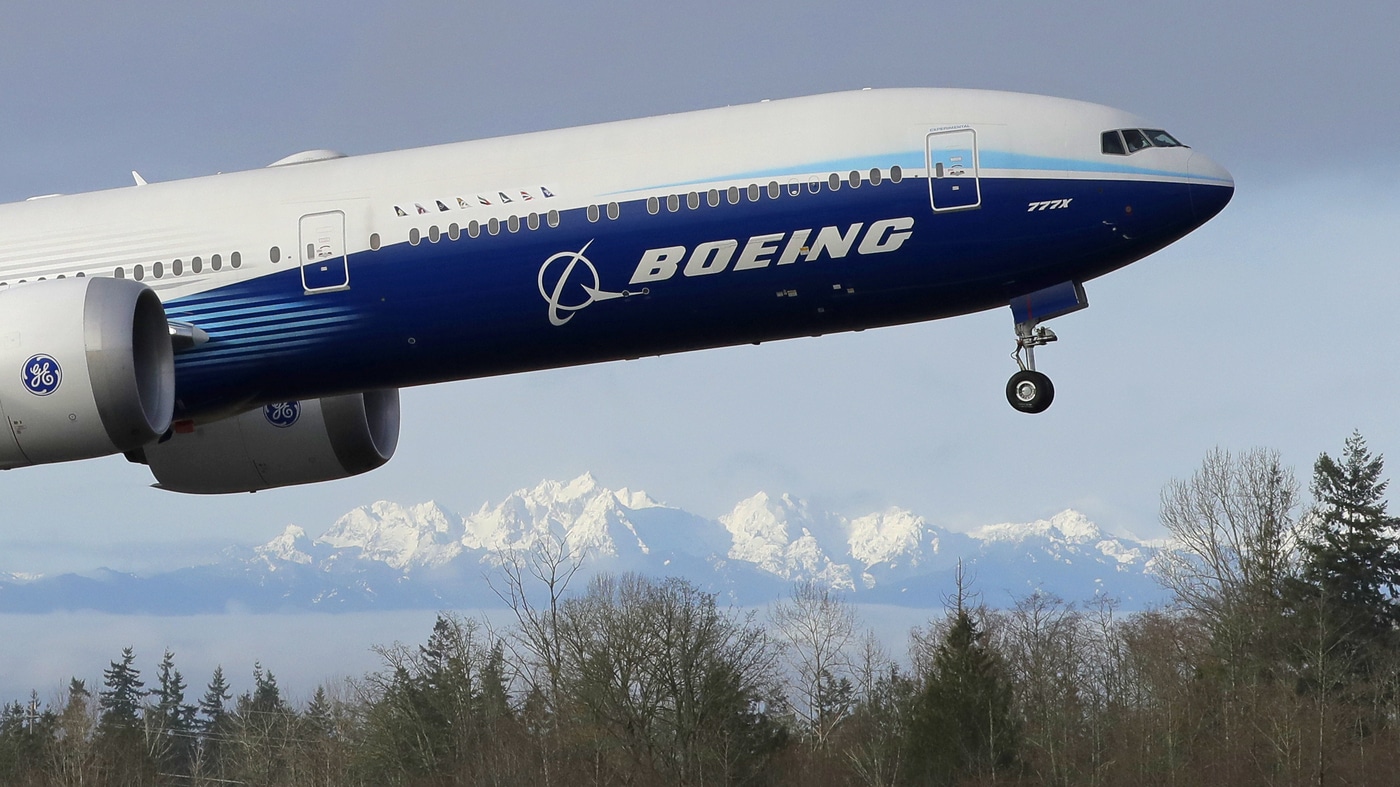Boeing faces up to $487 million in fines as part of its expected guilty plea to a felony charge stemming from two fatal 737 Max crashes. Critics of the arrangement, meanwhile, describe it as a “slap on the wrist.”
While corporate guilty pleas by firms the scale of Boeing are uncommon, and some of the plea agreement’s requirements were obviously burdensome to Boeing leadership, the settlement demonstrates the limits of corporate criminal charges.
Boeing agreed to plead guilty to a charge of defrauding the Federal Aviation Administration by concealing critical information about a design fault in the 737 Max during the initial certification process. This design defect has been linked to crashes in 2018 and 2019, which killed 346 people and plunged the firm into a crisis that resulted in $32 billion in losses.
“The Justice Department does no one any favors by trying to sell this as a tough deal,” said Peter Goeltz, a former managing director of the National Transportation Safety Board and current CNN contributor who works for transportation corporations. “It doesn’t smell like a tough deal.”
Under the plea agreement reached late Sunday, Boeing’s $243 million fine, which it agreed to pay back in 2021, could be increased to $487 million.
“That’s what, the price of three 777’s?” Goeltz stated. “I’m not sure that it’s a significant fine.”
Additional data support Goeltz’s claims.
Before the losses in 2019, the business had reported record annual revenue of $101 billion and core operating profit of $10.7 billion, or 21 times the cost of the $487 million punishment.
While Boeing’s credit rating is now at risk of being downgraded to junk bond status for the first time, credit rating firm Moody’s said Monday that the plea and penalty “will have little effect on Boeing’s finances and operations.”

How Boeing Defrauded The United States And Escaped With A ‘Slap On The Wrist’
And Boeing almost escaped this slap on the wrist.
In January, a door stopper blew off a Boeing 737 Max as it approached 16,000 feet. While no one was killed or seriously injured on that Alaska Airlines flight, the incident not only drew unwanted attention and a slew of federal investigations, but it also jeopardized an agreement Boeing reached with the Justice Department in January 2021 to eliminate the risk of prosecution for defrauding the FAA during the Max certification. The Alaska Air tragedy occurred just days before the probationary term would have expired.
Getting off cheap.
The expected guilty plea did little to appease family members of the crash victims, who called it a “sweetheart deal,” an “atrocious abomination,” and a horrible “miscarriage of justice.”
Their attorneys suggested that Boeing should have received a maximum sentence of $24.8 billion, which they determined by multiplying their estimate of the families’ cumulative losses.
Other firms that pled guilty to felonies have agreed to even higher fines. BP has agreed to pay $4 billion to settle criminal charges, including manslaughter, stemming from an explosion and oil spill at its Deepwater Horizon oil platform in 2010, which killed 11 workers.
In 2017, Volkswagen pleaded guilty to three US felony criminal charges and agreed to pay $2.8 billion in criminal penalties for cheating on diesel emissions tests.
“The fact that this is in the millions of dollars rather than billions is an indication that this is a slap on the wrist,” said Paul Cassell, a University of Utah law professor who worked on the BP case on behalf of victims and is now representing the families of the Boeing tragedies.
One of the factors that has enraged family members is that Boeing chose to plead guilty to simply deceiving the FAA rather than face manslaughter charges for the deaths of hundreds of individuals.
“That’s a tougher case to prove, but I believe the evidence was there,” said Mark Lindquist, another attorney who represents family members and other passengers on the Alaska Airlines aircraft.
“As a practical matter, the result might not have been a lot different” if there had been manslaughter rather than fraud charges in this criminal case, Lindquist stated. “From a philosophical basis, it would have felt more like accountability and justice for the victims’ families.”
Why are no executives facing charges?
However, while the Justice Department stated in January 2021 that “misleading statements, half-truths, and omissions communicated by Boeing employees to the FAA” played a direct role in the crashes, it has taken only limited criminal action against any individual employee and none against the top executives who oversaw the company’s decisions at the time.
The Justice Department issued a press release early Monday stating that the agreement provided “no immunity to any individual employees, including corporate executives, for any conduct.”
However, only one of the two former Boeing workers named in the case’s original settlement in 2021, Mark Forkner, the company’s chief technical pilot at the time, faced criminal charges. He was subsequently acquitted when his attorney convinced the jury that he was being used as a scapegoat.
“As a practical matter, individuals are more sympathetic to jurors than companies,” he said. “DOJ made a prosecutorial decision to pursue the company rather than individuals.”
Other defenses in an individual’s criminal case do not exist in a company’s criminal case.
“With an individual, there’s always someone else he or she can point the finger at,” Lindquist told me.
According to Lindquist, Boeing attorneys were on a mission to ensure that corporate officials were not charged with any crimes.
“From the beginning, that’s been clear,” he told me.
A Boeing spokeswoman said the company had no comment on the expected guilty plea or the case other than a brief statement announcing the arrangement.
Another method to make executives pay.
Even if no criminal charges are filed against CEOs, Arlen said they might face hefty consequences. That might take the form of “clawbacks,” in which Boeing asks that executives repay incentives received while the misbehavior occurred.
“Ensuring that the individuals are held accountable is the most important thing,” she told me.
But, so far, the Boeing board has yet to show much desire to hold executives financially accountable. It just handed CEO Dave Calhoun a 45% raise, increasing his remuneration from $22.6 million to $32.8 million in 2023.
His predecessor, Dennis Muilenburg, was fired as CEO at the end of 2019 without compensation but departed the business with a bundle of stock valued at approximately $80 million at the time.

How Boeing Defrauded The United States And Escaped With A ‘Slap On The Wrist’
When asked about potential clawbacks, Boeing cited company policy, which states: “The board shall have the discretion…to recover incentive-based compensation paid to any executive of the company who has engaged in fraud, bribery, or illegal acts…or knowingly failed to report such acts of an employee over whom such officer had direct supervisory responsibility.” Despite the language, no clawbacks have occurred.
Arlen also argued that clawing back salary for board members was justified. Calhoun was not an executive at the time, but he served on the Boeing board and earned more than $300,000 per year while the Max was being certified.
“At the end of the day, when you have a company with systemic problems, the ultimate buck stops with the board,” she told me.
Why will Boeing preserve its federal contracts?
The most serious penalty that Boeing could face is by far the least likely: it could be excluded from federal government contracts as a result of its guilty plea. And this might potentially force the company out of existence. According to business reports, US government contracts accounted for 37% of total income in 2023, or around $29 billion.
However, while it will require permission from the government to continue its contracts, everyone expects those waivers to be granted.
With Boeing, despite the anticipated guilty plea and years of quality difficulties.
It is still the country’s top exporter, with almost 150,000 US employees. The corporation predicts that its economic impact will be $79 billion, sustaining 1.6 million direct and indirect jobs at over 9,900 suppliers throughout all 50 states. And it is critical to the seamless operation of the country’s air transport system.
“It’s very clear to me that Boeing is going to survive this,” said Robert Clifford, another lawyer representing families of crash victims. “Why does Boeing get a pass, but other criminal defendants do not? “Because they are Boeing.”
SOURCE | CNN










